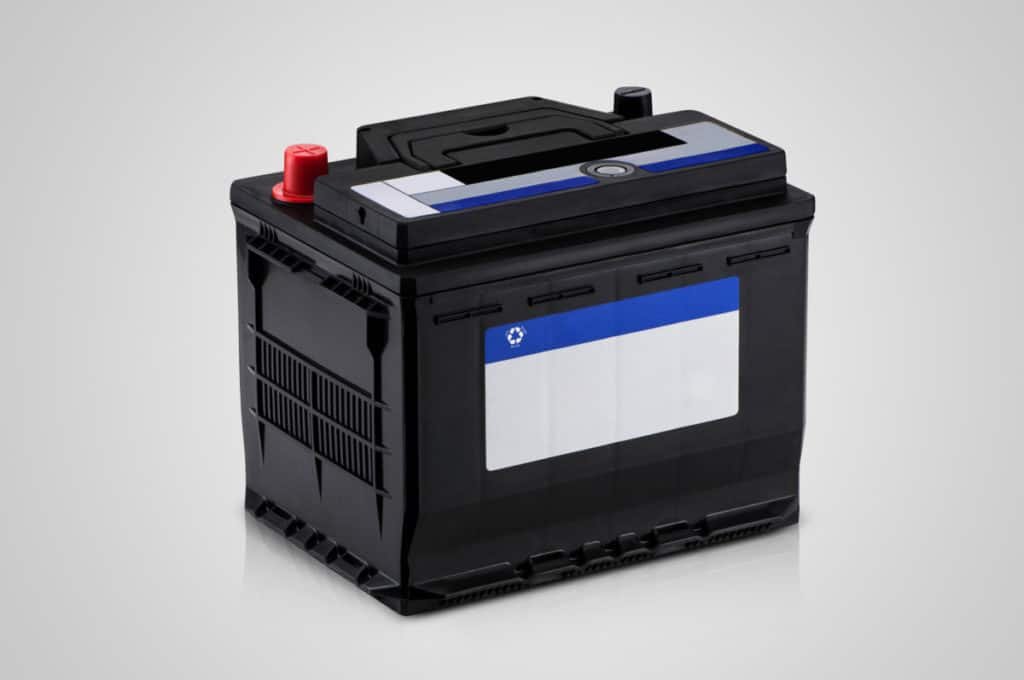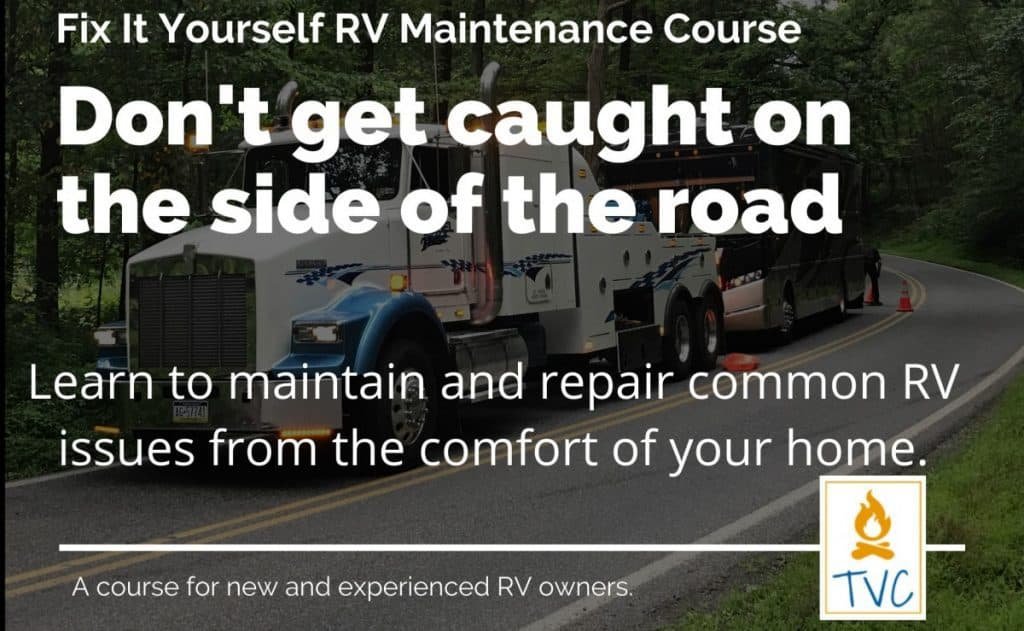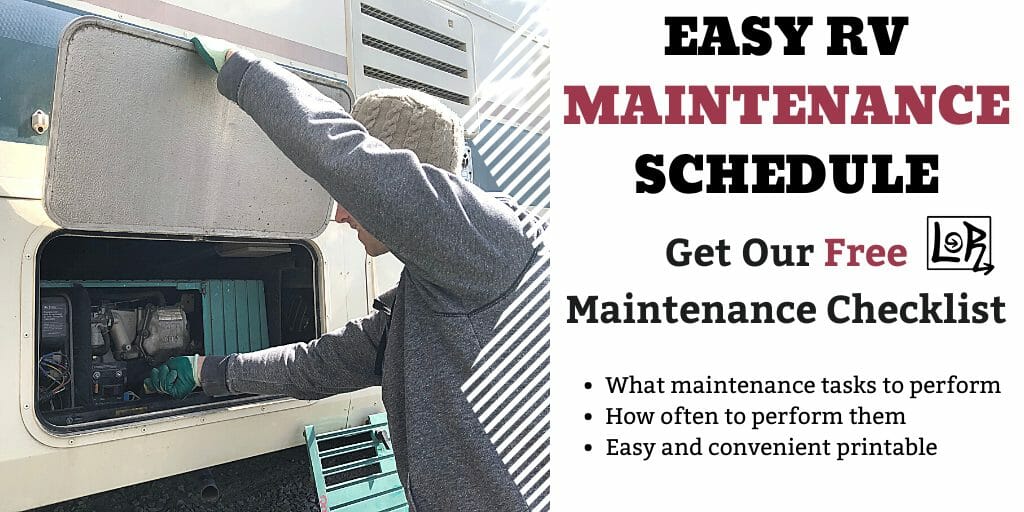This post contains affiliate links.
RV electrical systems can seem fairly complex compared to the electrical system in your house. Items like an inverter are present to power supply ac voltage to appliances. RV inverters can seem like relatively complicated electrical devices, and it’s hard to know when they should be left on or turned off.
For most installations, an RV inverter should be turned off when not in use. This is because an inverter can drain power from batteries even when there is no power being used. Campers and trailers with dual unit inverters can remain on while plugged into shore power to keep the batteries charged.

The circumstances around your inverter’s function are just as important as assessing the inverter itself to determine whether it should be left on or shut off when not in use. Keep reading to learn everything you need to know about rv inverters, their function in powering an RV, and if they should be left on or not.

Table of Contents
What Is an RV Inverter?
Simply put, an RV inverter is an electrical module that changes incoming DC amps from the coach battery into usable AC amps. The inverted AC power can be put to work running household appliances and other electrical devices plugged into outlets inside an RV. See our resource on if and why you need an inverter generator for you RV.
Inverters allow people using an RV to camp off-grid without access to a generator plug-in or shore power, but still have access to some of the comforts of home such as refrigerators, microwaves, and televisions. Pure sine wave inverters are better than modified sine wave inverters for powering an ac appliance.
Inverters can also invert incoming DC power from RV solar panels into usable AC power for the outlets. This helps diminish the draw on the RV’s battery bank when not connected to shore power. If you are considering RV solar panels here is our complete RV guide to RV solar installations.
Inverters vs. Converters vs. Converter-Chargers
People often get confused when discussing the various components of an RV’s electrical system. The fact is that converters, inverters, and chargers all perform very different functions in an RV’s energy production and distribution.
An inverter inverts incoming “Direct Current” or DC current into “Alternating Current” or AC current for use in appliances that run on regular household 120VAC current.
In contrast to this, a converter takes 120VAC current from shore power or a generator and converts it to 12VDC current to operate appliances that run on DC current like the RV batteries supply.
A converter helps to prevent your RV’s main battery from being drained while you’re using DC appliances with shore power. In contrast, an inverter allows you to use AC appliances like your rv refrigerator while you’re off-grid. See this guide to operating an RV refrigerator on batteries.
A converter-charger not only acts as a normal converter but also charges up battery power when it has excess supply from solar panels, shore power or a generator.
Fix It Yourself RV Maintenance Course
The most costly parts of RV ownership are repairs and maintenance. That’s why I recommend learning to do your own RV repair and maintenance.
The Fix It Yourself RV Maintenance Course is the perfect way to learn how to do the most common repairs and maintenance on your RV. A Certified RV Technician wrote and filmed the course so you know the information is actually correct.
Plus it’s downloadable so you can access it from anywhere, even when boondocking in the middle of nowhere with no service.
Find out more about the best RV Maintenance and Repair Course available!
Inverters vs. Dual Units
A basic rv inverter only functions to change 12 volt DC power into 120v AC power. Newer models of inverters are designed as dual units that control both inverter and battery charging functions.
If you have a dual unit, this means that your power inverter is more integrated into your RV’s power system, and is likely designed to be left on. The converter will handle maintaining battery levels when the inverter is in use and shore power or solar panels are connected.
If you have just purchased your RV, check to see if you have a power inverter. If so, and the RV is a newer model, it is likely to be a dual unit. These have increased in popularity over the past several years and are considered a more efficient option than separate inverters and converters.

Reasons to Leave an Inverter Turned On
If you’re expecting to lose access to shore power but want to keep using your appliances, you’ll need to leave your rv inverter on. Here are some more reasons it is beneficial to leave an inverter turned on:
- While actively traveling you’ll want to leave an inverter running in order to be able to use AC appliances in the RV.
- If you are leaving a campground and disconnecting from shore power, leaving the inverter on will make sure your appliances continue to work when you break the connection, leaving you with uninterrupted power in the RV’s cabin for travel.
- If you have an ac refrigerator in your RV, you’ll likely want to leave your inverter on to ensure that its contents remain cool. Especially if you are carrying foods that are temperature sensitive, such as meat or dairy. Here’s 12 tips to properly pack an rv refrigerator.
- If your rv inverter is a dual unit (an inverter-converter combination) you will want to leave your inverter on so the converter can do its job and charge house batteries while using shore power or solar panels.
- Leaving an inverter on ensures continuous ac power which means you won’t lose any settings (such as clock settings) on devices like alarm clocks or microwaves.
- While traveling, you’ll want to leave an inverter on if you plan to charge your laptops and other devices using standard wall chargers.
Whether or not you leave your rv inverter on depends heavily on whether your inverter is an inverter-only type, or if it also has converter functions. You need to check the make and model of your personal inverter and look at its specifications to see whether it has converter ability or not.

Reasons to Leave an Inverter Turned Off
When your RV is connected to shore power it has a constant supply of ac power and so the inverter can remain turned off. Here are some other reasons you might choose not to leave your inverter on all the time:
- Some rv inverter manufacturers recommend that inverters be turned off when not actively in use. Check your inverter user manual and see whether it is recommended for you to turn it off or not and proceed accordingly.
- One major reason to turn your inverter off when not in use is that it is a serious battery hog. The inverter needs to draw upwards of ten times as much amperage off the battery as it is required to supply. When left on it can drain an RV battery quickly if shore power is not available. Here are 6 common reasons your RV battery keeps dying.
- Turning off your rv inverter when not in use can save on significant amounts of wear and tear of the device and can extend its life longer than if you left it on continuously.
- Some people find it easier to run a generator when AC power is needed rather than drain the batteries by using the inverter all the time. Having an automatic start function connected to your generator that monitors battery levels can protect your batteries from damage.
- If you don’t have any ac appliances that require constant AC power, you can save a lot of energy consumption by shutting your inverter off.
Do Inverters Drain Batteries?

The biggest problem with inverters is that they drain batteries fast in order to perform the function of inverting DC power to AC current. This applies to deep cycle and lithium batteries.
Even when in standby mode, the inverters draw small amounts of power from the battery banks of the RV to power their electronics. If an RV or trailer is parked for an extended time this small trickle can drain the batteries.
Having a robust lithium battery system along with a solar installation or gas generator will guarantee your RV is powered at all times. It will easily support the constant or near-constant use of an inverter.
But if you have only limited battery capacity on your RV and no charging source it’s safest to restrict only having the inverter on when it is required. See our Deep Cycle RV Battery resource guide for help.
Many campers and trailers have multi-fuel appliances like rv refrigerators, rooftop AC units and water heaters that run on propane as well as AC power. Using “2 way” appliances reduces the need for an inverter to power these devices.

Final Thoughts
Inverters can be extremely handy if you’re wanting to use electrical devices like an rv refrigerator off-grid when you’re boondocking. You just need to stay aware of your battery’s voltage level and have a way to replace that power via a generator or shore power connection if it gets low.



